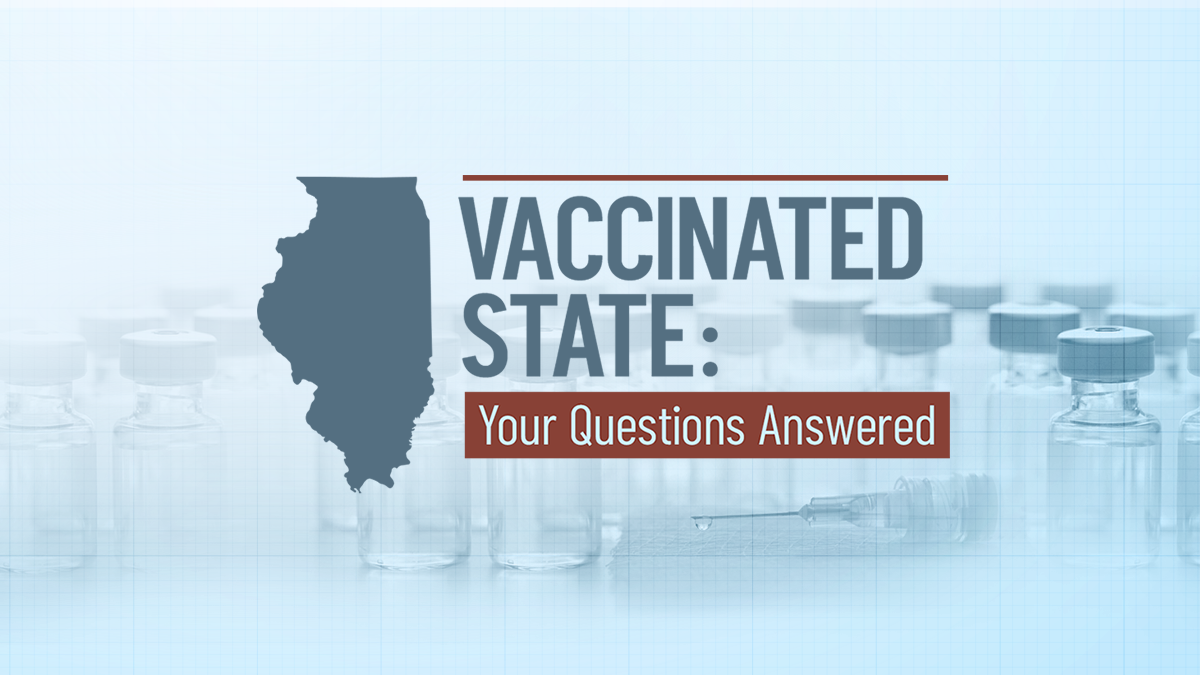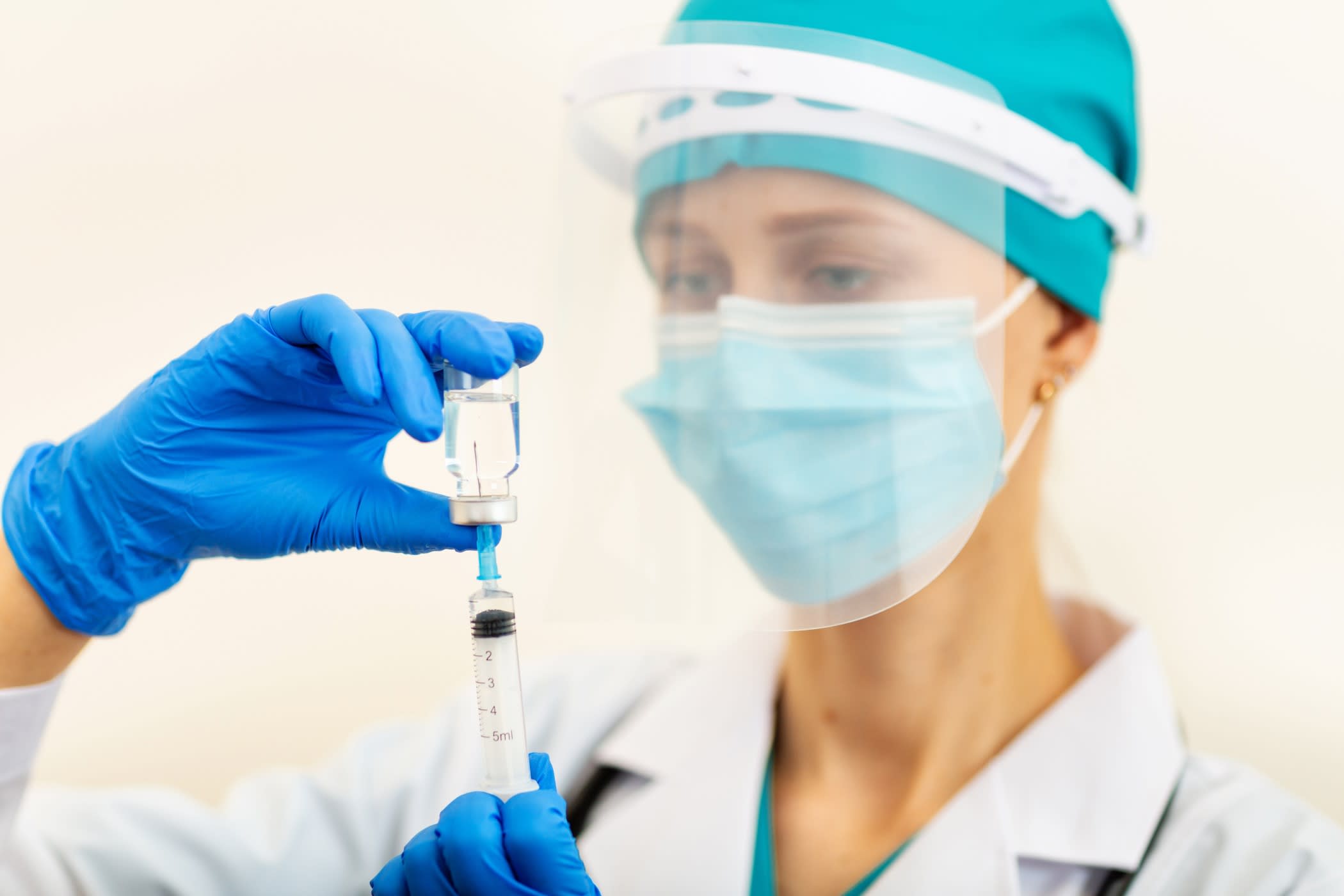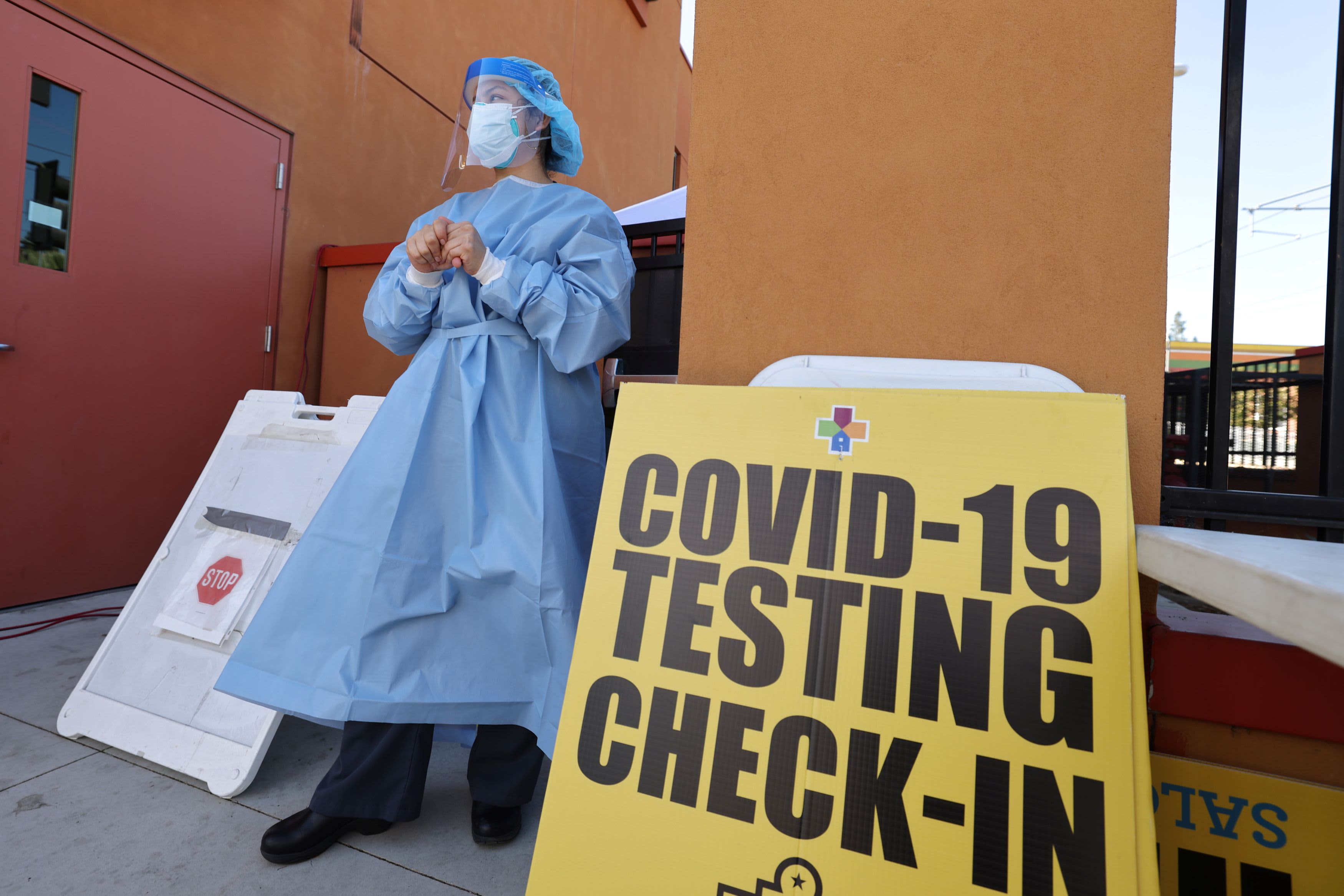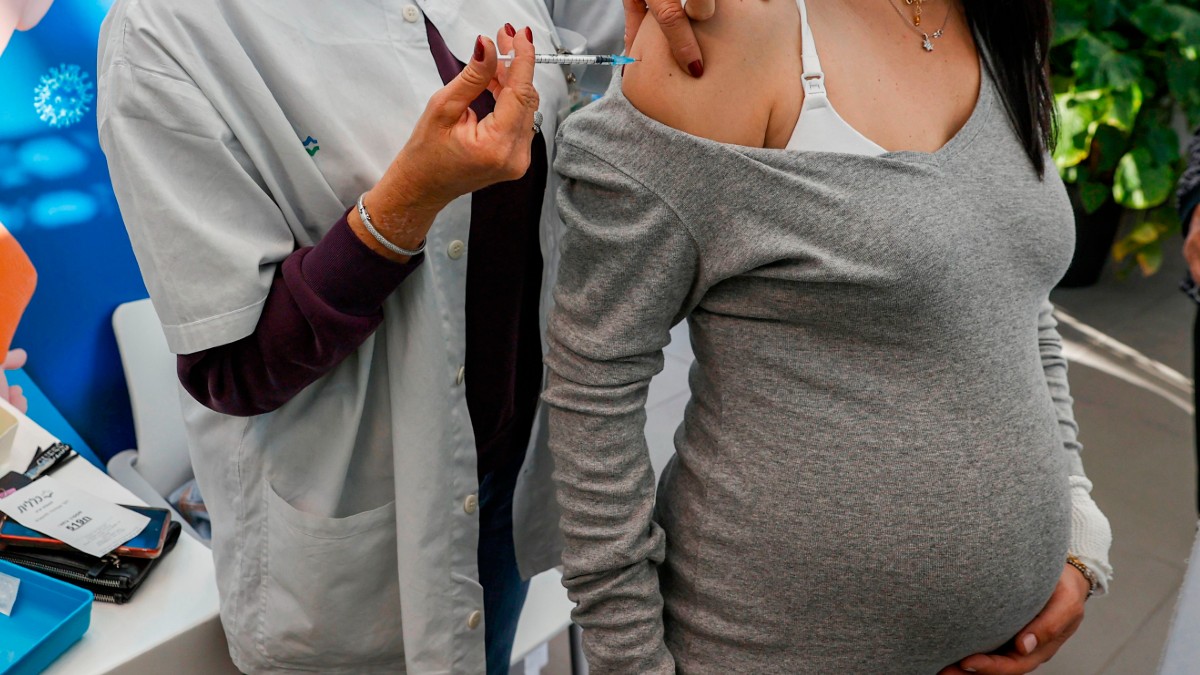You've received both shots of your COVID vaccine, or one dose of the Johnson & Johnson single-shot vaccination, so now what?
Can you see people? Should you still wear a mask? What about social distancing?
Medical experts and health officials broke down some of the things you can and cannot do post-vaccination:
If you and someone else are completely vaccinated, can you see each other indoors without masks?
The Centers for Disease Control and Prevention recently updated their guidelines for vaccinated individuals.
The recommendations from federal health officials say fully-vaccinated Americans can gather with other vaccinated people indoors without wearing a mask or social distancing.
“The interim CDC guidelines suggest it is relatively safe for individuals who are fully vaccinated to meet together indoors without masking or social distancing," Mercedes Carnethon, vice chair of preventive medicine at Northwestern University's Feinberg School of Medicine said.
What if only one of you is vaccinated?
The CDC guidelines also say that vaccinated people can come together in the same way with people considered at low-risk for severe disease, such as in the case of vaccinated grandparents visiting healthy children and grandchildren.
"If there is someone who is fully vaccinated, they can visit in one household of people who are not fully vaccinated as long as there's nobody with significant underlying risks," Chicago Department of Public Health Commissioner Dr. Allison Arwady said earlier this month. "So... what does that mean? Say, you know, my mom has grandkids. My mom has not seen her grandkids here in the Chicago area for, I don't know, six months or something. And with some of this guidance, my mom is able to go visit the grandkids. There's nobody in my sister's house who is at an increased risk of severe outcome and even though the children are too young to be vaccinated because my mom is fully vaccinated, it's fine for her to be in that house, to see the grandkids, without wearing a mask without social distancing."
Feeling out of the loop? We'll catch you up on the Chicago news you need to know. Sign up for the weekly Chicago Catch-Up newsletter.
How long must you wait after receiving your vaccine before you are considered "fully vaccinated?"
Complete vaccination is said to be two weeks after a person receives their second dose of the two-shot Pfizer and Moderna vaccines or after their first dose of the single-shot Johnson & Johnson vaccine.
Is there a limit to how many vaccinated people can gather together indoors?
“Two or more vaccinated people may meet indoors without masks or social distancing measures as both parties are at very low risk of either symptomatic or asymptomatic infection," Dr. Michelle Prickett, associate professor of medicine in pulmonary and critical care at Feinberg said. "These encounters should be in non-public areas and limited to small gatherings. Moderate or large groups are still encouraged to practice all infection-reduction methods at this time.”
Do you still need to wear masks when in public spaces if you are fully vaccinated?
The CDC is continuing to recommend that fully vaccinated people continue to wear well-fitted masks, avoid large gatherings, and physically distance themselves from others when out in public.
“If you are in an indoor public area with vaccinated and unvaccinated people, nothing has changed. You still need a mask and social distancing," Dr. Robert Murphy, executive director of the Institute for Global Health at Feinberg, said in a statement.
His comments were echoed by Carnethon.
“One reason masking is still required in public spaces is that there are undoubtedly individuals who are ineligible for vaccination or unwilling or unable to be vaccinated," Carnethon said. "It is too early to assume all age-eligible adults have had access to a vaccine and so vaccinated adults should reinforce the public health messages around basic mitigation strategies including masking, handwashing and distancing.”
Arwady also noted that public health guidelines remain unchanged, even for vaccinated residents.
"You know what hasn't changed though is that we definitely still need people wearing the mask, doing the social distancing, doing all this anytime you're in public," she said. "Anytime we're doing gatherings, even medium-sized gatherings, you've got to keep doing this. These exceptions are for again, people gathering where everybody's been vaccinated or in a single household, but as our numbers keep getting better, stay down, we'll probably be able to even loosen up some more."
Until children can be vaccinated, however, Arwady asked families "please don't have a lot of gatherings with children who can't be vaccinated yet."
The director of the CDC made an impassioned plea to Americans Monday not to let their guard down in the fight against COVID-19, warning of a potential “fourth wave” of the virus as cases in the U.S. rose 10% over the last week.
Even as the vaccination campaign has ramped up, the number of daily cases are now growing by at least 5% in 30 states and D.C. The seven-day rolling average for daily new cases in the U.S. increased over the past two weeks from 53,670 on March 14 to 63,239 on Sunday, according to Johns Hopkins University.
Experts worry the public is getting the message that increased vaccination means a state is in the clear, even though only a fraction of the public has completed a full course. Vaccines lessen the risk of severe illness or death from COVID-19, but scientists are still studying how well they prevent the spread of the virus.
If you are outside, should you still wear a mask?
“If you are alone in the woods, no need for masks. If you run into someone, you still need to be masked and socially distanced," Murphy said.
What about restaurants?
The CDC guidance says nothing about going to restaurants or other places, even though governors are lifting restrictions on businesses.
"Outdoor dining is safer than indoors as COVID is spread through both droplets and aerosols. In the case of outdoor restaurants, there are still potential exposers from wait staff and other patrons in the area," Prickett said. "Continuing with masking except when eating should still be considered even with outdoor dining until more individuals are vaccinated.”
Currently, Illinois and Chicago have capacity restrictions for indoor dining, though new state guidelines dictate that anyone with proof of full vaccination or a negative COVID-19 PCR test within one to three days of an event or outing will not count toward capacity limits. In Chicago, however, vaccinated residents still count.
Can fully vaccinated people travel?
The CDC did not change its recommendations on travel, which discourages unnecessary travel and calls for getting tested within a few days of the trip. That could seem confusing to vaccinated people hoping to visit family across the country or abroad.
In Chicago, a travel order remains in effect as the city's top doctor continues to urge residents to avoid all nonessential travel. But fully vaccinated residents are exempt from the quarantine or testing requirements.
"Bottom line is delay that travel, especially international travel, until you are fully vaccinated, your risks go down a lot," Arwady said last week. "And then when you're in public spaces, if you're on the airplane, if you're in the airport, if you're, you know, in another setting, anywhere where you don't know everybody around you has been fully vaccinated, please, please, please be extra careful with this."
What if you're exposed to someone with coronavirus but you are fully vaccinated?
According to the CDC, vaccinated people who are exposed to someone with a suspected or confirmed COVID-19 case do not need to quarantine if they meet the following criteria:
- Are fully vaccinated (i.e., ≥2 weeks following receipt of the second dose in a 2-dose series, or ≥2 weeks following receipt of one dose of a single-dose vaccine)
- Are within 3 months following receipt of the last dose in the series
- Have remained asymptomatic since the current COVID-19 exposure
The CDC advised vaccinated people to get tested if they develop symptoms that could be related to COVID-19.
When might things return to normal as people continue to be vaccinated?
With masking still required in many instances, even for vaccinated individuals, experts say those circumstances likely won't be changing anytime soon.
“Unfortunately, the risk of COVID will be with us for some time," said Dr. Benjamin Singer, assistant professor of medicine in pulmonary and critical care at Northwestern University Feinberg School of Medicine. "While vaccine rates are ramping up, particularly among vulnerable populations, we can expect recommendations to continue masking in public. But I am hopeful that we will see easing of recommendations for vaccinated people as the data evolve over the coming months.”
Health experts have also noted that masking isn't just preventing spread of coronavirus, but other viruses.
“The last year has shown us how important masking can be to reduce COVID but also other viral infections. We have seen unprecedented decreases in other respiratory illnesses such as influenza this past year related largely to masking and other infection-prevention measures," Prickett said. "I would expect a reduction in need for universal public masking to slowly decrease as we see more vaccinations and fewer cases in the coming months. However, we should still consider the valuable lessons learned on the importance of masking when potentially sick or in tight public spaces. Masking on some level should remain a part of ongoing public health initiatives for all respiratory illnesses.”
Another cause of concern with loosening mask requirements comes from the emergence of new variants of the coronavirus, which could cause another surge in cases.
“There are concerns that the rate of mutations will compromise the progress we are making in lowering the rate of new cases and resulting deaths and hospitalizations," Carnethon said. "The longer the virus circulates in the population, the more opportunity it has to mutate to make itself more efficient at infecting its hosts. At present, there does not appear to be evidence that the new variants can completely bypass the vaccines we have, so it is important to keep up the pace of vaccinations so that we can stay ahead of the viral mutations."
The comments echo those made by health professionals during NBC 5's "Vaccinated State" panel last month.
"There are still a lot of cases and we're sort of looking at these new variants as being a potential threat on the horizon," Dr. Emily Landon, executive medical director of Infection Control and Prevention at University of Chicago Medicine said. "And we know that the vaccines are going to protect people from getting very sick with them, but we don't know exactly whether or not people are going to be able to spread COVID to other people."
According to the CDC, the agency is closely monitoring emerging variants that "have mutations in the virus genome that alter the characteristics and cause the virus to act differently in ways that are significant to public health." The agency said the current variants "spread more easily and quickly than other variants."
The CDC notes, however, that "genetic mutations are expected, and some variants can spread and become predominant while others subside," but studies so far suggest that antibodies from the current coronavirus vaccines in the U.S. "recognize these variants."





